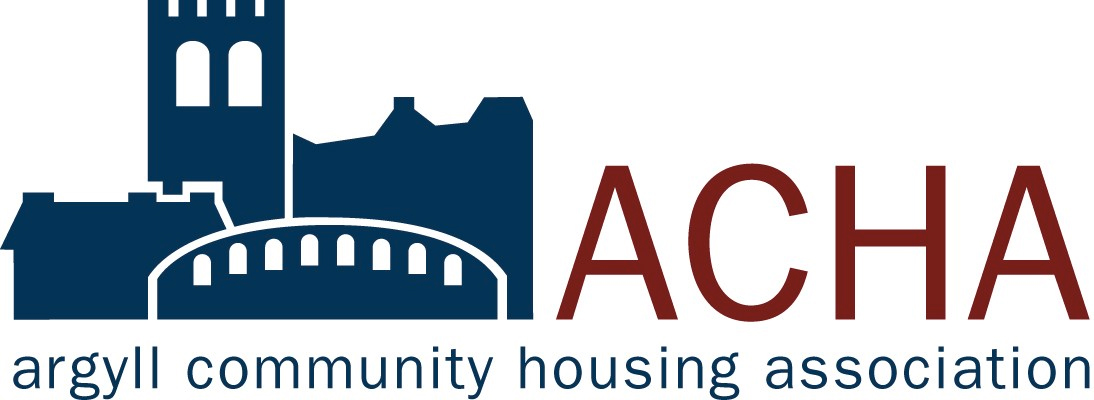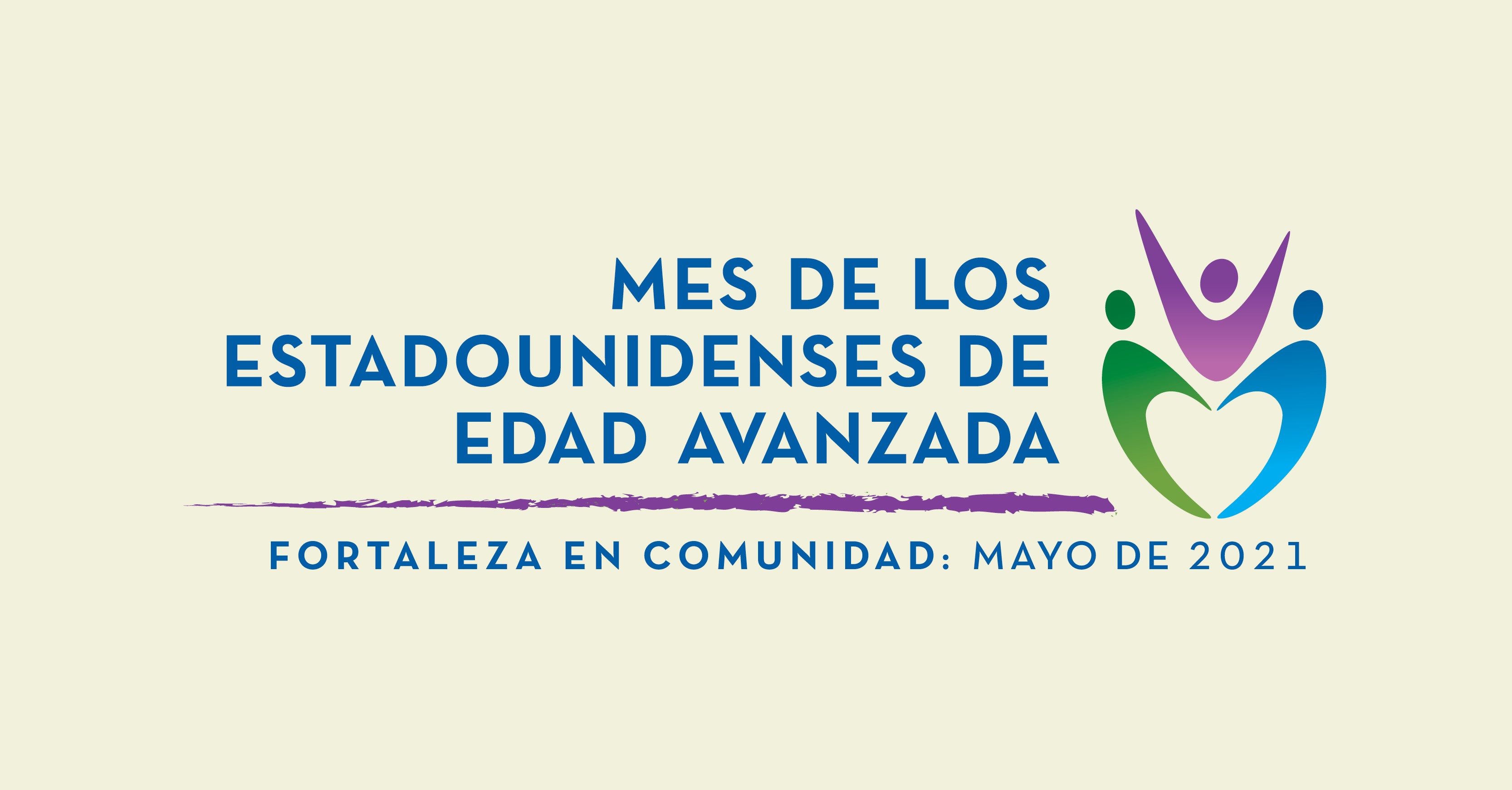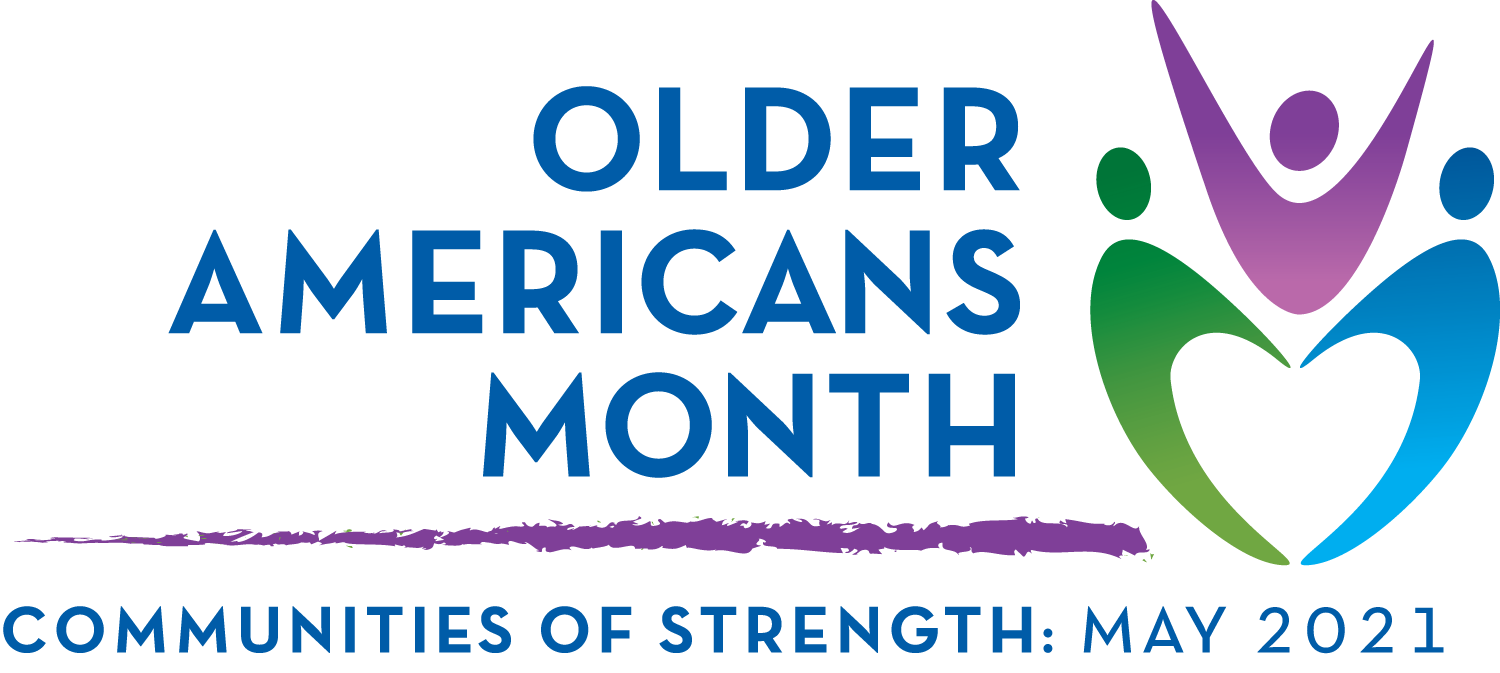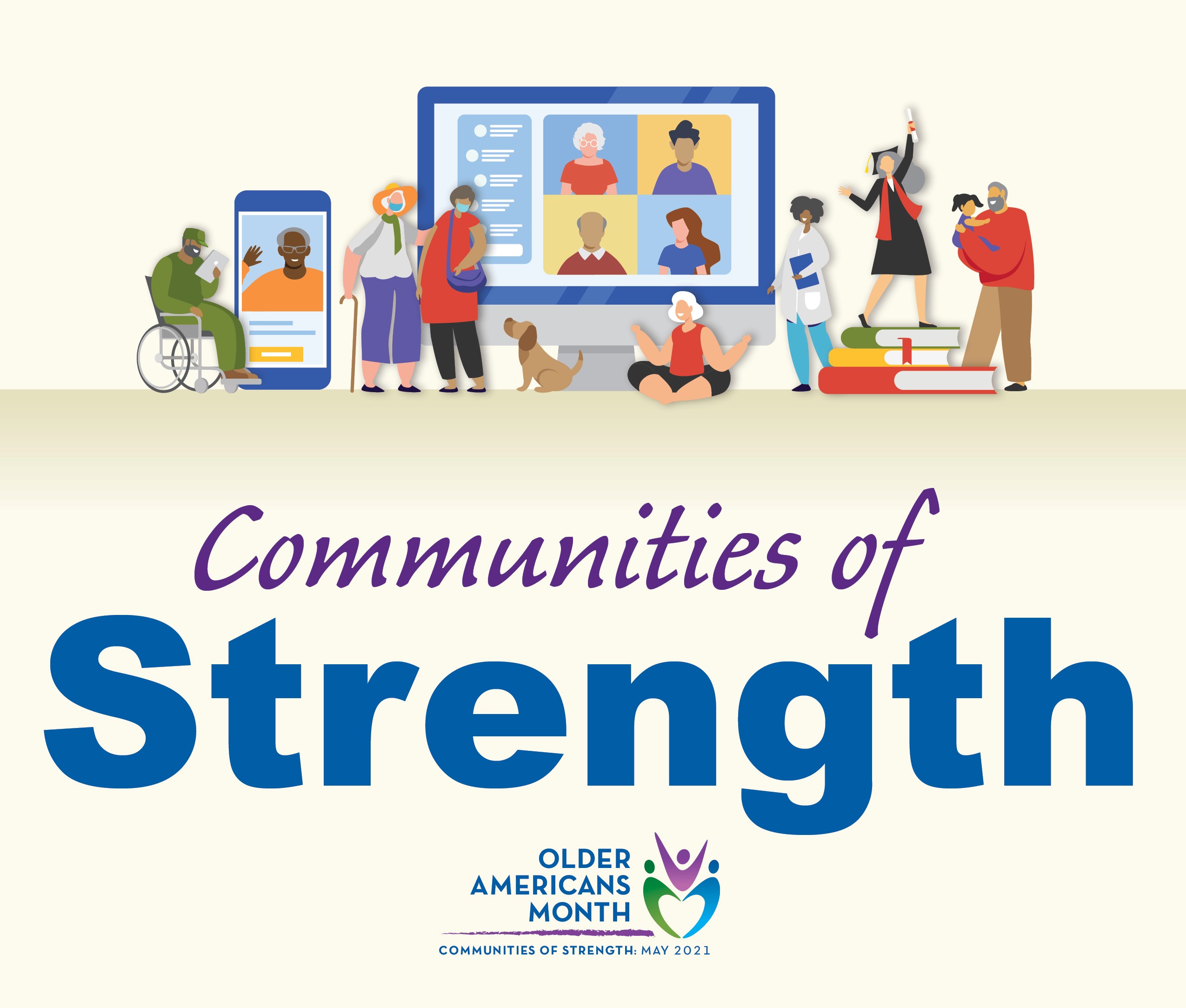The ACL Business Acumen Learning Collaborative2 is a community-level effort to improve the business acumen of the organizations and agencies that provide community-based services. Greenlee noted the tremendous support that The John A. Hartford Foundation and The SCAN Foundation have given as ACL has worked to change the network of services it supports and to make previously free services more sustainable in an uncertain funding climate. "We are taking a national network of nonprofits—the area agencies on aging centers for independent living—and changing their fundamental business structure," Greenlee said.
"Not their mission, not their value, not their contribution, their structure." These are primarily grant-based organizations that receive money from the federal government via the states and the Older Americans Act, she explained. They are learning to become providers, to demonstrate their economic value, and to bill for their services. Possible opportunities include establishing meal providers that hospitals can contract with to deliver meals to the home of someone recently released from the hospital. Other services that might be able to generate fees rather than subsist on grants include community-based transportation networks and case management. There is still a role for services that are provided free of charge, Greenlee said. The challenge is that there is an assumption that all of the free community services are plentiful and will continue to be available for the clients of large long-term care providers, managed-care organizations, and hospital systems, even in an uncertain funding climate.
As the Obama Administration comes to a close, Greenlee and her colleagues at HHS have been working on a proposed budget for 2017. One question the Office of Management and Budget has asked was why the Centers for Medicare & Medicaid Services is not doing this work. ACL advocates across the federal government for older adults, people with disabilities, and families and caregivers; funds services and supports provided primarily by states and networks of community-based programs; and invests in training, education, research, and innovation. We manage a variety of programs , providing assistance on health and wellness, protecting rights and preventing abuse, supporting consumer control, strengthening the networks of community-based organizations, funding research, and much more.
Administration for Community Living advocates across the federal government for older adults, people with disabilities, and families and caregivers; funds services and supports provided primarily by states and networks of community-based programs; and invests in training, education, research, and innovation. To get in touch with Administration for Community Living, please visit their website. The programs are engaging in a range of activities designed to meet the needs of the communities and individuals they serve.
Programs target long-term services and supports to persons living with Alzheimer's disease and related dementias as well as paid and unpaid caregivers. While each program is different, all include activities designed to support special populations, including low-income and minority communities, people with ADRD who live alone, and individuals living with intellectual and developmental disabilities at risk of developing a dementia. ACL manages a variety of programs that focus on health and wellness, protect rights and prevent abuse, support consumer control, strengthen networks of community-based organizations, fund research, and more. ACL administers an array of Older Americans Act-funded programs, such as its chronic disease self-management education programs, through grant making to the aging network.
The Positive Self-Management Program, developed at Stanford University, is offered to older adults with HIV in Maine through one ACL grantee, and there are other health and wellness programs that grantees have tailored and packaged for older adults living with HIV. Additionally, ACL's Office of Healthcare Information and Counseling manages the State Health Insurance Assistance Program . SHIP counsels Medicare-eligible individuals to assist them with making informed health insurance decisions, which is helpful to those who are receiving Ryan White HIV/AIDS Program services.
Lastly, ACL's resource centers support grantees' work with targeted populations to provide services to historically underserved minority communities. In particular, the SAGE National Resource Center on LGBT Aging provides HIV and aging resources to ACL's grantees and the communities they serve. Whether it be home modification, transportation to medical appointments, or caregiver and home delivery meal services, all of ACL's programs "can be of benefit to people over 60 with HIV," as noted by Andrea. Specifically, the purpose of the grant is to build capacity across the networks to support individuals with ID/DD and their families better plan for their future across the lifespan, including addressing key social determinants of health in order to more effectively address the individual's needs, goals, and preferences.
She said that to do this work effectively, it is necessary to be able to live with dissonance. Disability and aging, for example, both have a history of stigma and discrimination, but they are not the same history, and civil rights factors into the field of disability in a way that it does not in aging. Therefore, bridging the fields of aging and disability requires patience, good intentions, and a lot of discussion about fundamental issues and clear communication about meaning. "The goal is not to think the same way or to be the same at all, but to have and articulate the same objectives," Greenlee said.
ACL has a shared vision of what it means to be an autonomous person living in the community with a need for both prevention services and supports. Greenlee cautioned that it is possible to get lost in the complexities of distinguishing between the different fields but to remain respectful and comfortable living with the differences. She said that ACL has changed some of the language it uses to accommodate the differences in how the aging and disability communities think and talk about "choice," living in community "for a lifetime," and end-of-life care. She said that disability and aging work will not be the same, but there are opportunities because they share common threats and common goals, such as the threat of the medical community dictating how individuals should live their lives and the goal of individuals living their lives how they want them to be.
During the course of ACL's work on improving business acumen and the coordination of LTSS, four key issues have emerged that should be kept in mind as this work moves forward, Greenlee said. "If we monetize , people will have to know that they are buying something that has an outcome that they want," she said. However, she said, focusing on quality outcomes is hard for the aging services network because of its historic emphasis on outputs, not outcomes. For example, when ACL instituted a requirement that states and area agencies could only spend Older Americans Act funds on evidence-based programs, there was some resistance. This requirement was a signal that an exercise program at a senior center could not be created just because someone volunteered to run it.
The exercise program must have fidelity and be replicated with outcomes that are proven, Greenlee explained. Toward this end, HHS has asked the National Quality Forum to identify the domains needed for quality measures of LTSS. The next step, Greenlee said, is to invest in research to populate these domains with data. Although some data are available at the local level, the research for home- and community-based services needs to be taken to a much larger scale. The third key issue relates to technology and, in particular, the development of interoperable electronic health record systems. Greenlee pointed to research on care transitions, funded by the Center for Medicare and Medicaid Innovation, as evidence that the lack of access that community-based organizations have to EHRs is a fundamental barrier to these organizations successfully moving forward.
In some cases local organizations, such as the Area Agency on Aging in San Diego County—an aging and disability resource center—have gone so far as to build their own systems to interface with regional hospitals. "Technology will keep the aging network and disability programs and local communities . At the starting gate if we don't talk about it, because no one is investing in ," said Greenlee. Kathy Greenlee of ACL and HHS began her presentation by recounting how when she first began working as the Assistant Secretary for Aging in 2009, HHS was putting together working groups to prepare for what would eventually become known as the Patient Protection and Affordable Care Act1 .
She recalled how she and Henry Claypool, who was then Secretary Kathleen Sebelius's advisor on disability policy, would receive the lists of those who were to be members of the working groups, and neither one of them would be included. "That was troubling to us and also an early warning that health reform was not long-term care reform," Greenlee said. Although long-term care reform is occurring, she added, it was not organized that way, nor was there recognition of the connection to community-based work on aging and disability. It was for this reason that Greenlee, Claypool, and Sharon Lewis—then the Administrator of the Administration on Intellectual and Developmental Disabilities—worked to create ACL. They envisioned ACL as the agency at HHS where the voices of older adults and people with disabilities would be heard in the health reform conversations.
To provide a framework for the workshop's discussions, two keynote speakers talked about what maximizing independence and community living mean, the successes that have already been achieved, the challenges that lie ahead, and suggestions for how to meet those challenges. Kathy Greenlee, the Administrator of the Administration for Community Living and the Assistant Secretary for Aging in the U.S. Department of Health and Human Services , gave a keynote presentation on the history and current state of the federal government's efforts to support community living and independence. Gretchen Alkema, the Vice President for Policy and Communications at The SCAN Foundation, then discussed the contrast between how Americans perceive issues of aging, disability, and independence and the realities of these issues. The Association for Community Living is a statewide membership organization of not-for-profit agencies that provide housing and rehabilitation services to 40,000 people diagnosed with serious and persistent psychiatric disabilities.
The day-to-day rehabilitative and support activities performed in community residential and other housing settings are vital for people who face the daily challenges of living with a psychiatric disability and want to live independent, productive and satisfying lives as members of the community. Greenlee began the discussion by offering a possible explanation for the concerns Alkema presented that highlighted the disconnect between what Americans believe and the realities of aging and disability. Greenlee suggested that the disconnect results from individuals' feelings about the concept of independence.
If admitting that they need care means that they will lose their independence, then they will not admit that they need care. However, if the question of independence and needing care is reframed by asking people what services they require to remain independent, then they make every effort to maintain their independence. She noted that the World Health Organization released a report that frames health as an issue of functional ability because of the way functional ability is linked to independence. Similarly, hypertension itself does not affect independence, but having a stroke that results in paralysis will affect functional ability and independence. DIAL, a first-of-its-kind national call center, supports people with disabilities and their families who are seeking information, assistance and resources that can help them make informed decisions about and receive access to COVID-19 vaccines that are available in their communities. DIAL is a much-needed resource that people with disabilities can use to stay healthy during the pandemic.
Meals on Wheels America is the leadership organization supporting the more than 5,000 community-based programs across the country that are dedicated to addressing senior isolation and hunger. This network serves virtually every community in America and, along with more than two million staff and volunteers, delivers the nutritious meals, friendly visits, and safety checks that enable America's seniors to live nourished lives with independence and dignity. By providing funding, leadership, education, research, and advocacy support, Meals on Wheels America empowers its local member programs to strengthen their communities, one senior at a time. Passport is an avenue of direct funding that enables adults who have an intellectual disability to pay for help with daily living and respite.
Passport was designed to enhance opportunities for individuals who have an intellectual disability, who have left school, and who are seeking access to community participation supports. Develop a new home modification training program to educate members of the Aging Network, the network of federal, state and local agencies working to support successful aging in homes and communities, on how to better connect older adults to resources and funding. The Lurie Institute for Disability Policy is dedicated to improving the lives of people with disabilities across the lifespan through innovative social policies that foster inclusion into the mainstream of society. The Lurie Institute conducts research on disability policy, focusing on the lifespan of persons with disabilities and their families, and analyzing policy options for achieving the broadest integration of persons with disabilities, including their own voices in such analyses. Even more surprising, she said, is that the percentage of poll respondents who held this belief increased substantially between the 2013 poll and the 2015 poll.
One possible reason for this concerning trend, she suggested, is that it is driven by those who are 40 to 45 years old and are just beginning to experience the consequences of aging in their own families. Another possible reason, based on anecdotal observations from other health-related polls, is that these results have been affected by the economic recovery in the United States. Regardless of the reason, Alkema said, these results represent an enormous problem regarding Americans' awareness of the impending impact of an aging population.
The nation's population age 65 and older is projected to double between 2010 and 2038. By the end of 2021,the number of older adults in Colorado is expected to increase by 54 percent. This Office helps prepare the state to meet the need for long-term services and supports and focuses attention and resources on meeting the unique needs of aging Coloradans and individuals with disabilities. OCL aligns services and supports so that individuals and their families, do not have to navigate a complicated and fragmented system. The Administration for Community Living , as part of the Department of Health and Human Services, works with states, tribes, and an extensive network of advocates and service providers to help older adults and people of all ages with disabilities live independently and participate fully in their communities. In the past six years, CVACL's services have expanded significantly to include the whole spectrum of the aging population and individuals living with disabilities.
Programing has expanded to include comprehensive evidence-based disease and falls prevention coaching and classes and active aging initiatives. Options counseling and "Take Charge," a Care Transitions Model, continue to grow and thrive. The other significant stride forward that ACL has made, with strong support from CMS and the U.S.
Department of Veterans Affairs, is a state-level effort to help improve the coordination of LTSS. ACL has taken the core principles of what CMS has done with its "no wrong door" approach for beneficiaries to gain access to CMS services and is working to extend a similar model to the entire range of aging and disability services. One goal of this work, Greenlee said, is to bring all potential beneficiaries to the table—not just those who have spent down all of their savings, but also those who still have savings and who, with some assistance, might be able to avoid spending down their savings and having to enroll in Medicaid to pay for their LTSS needs. She cited the collaboration between the Partners in Care Foundation and Blue Shield of California as one example of how states are designing programs so that they can provide a modest amount of help to individuals earlier, which may delay or prevent individuals from ever needing to enter the Medicaid system. CMS, Greenlee explained, interfaces with state Medicaid agencies, which are essentially insurance finance companies and not program agencies.
Although some at CMS know what work ACL does at the community level, those involved with Medicare or the Center for Medicare & Medicaid Innovation generally do not. To provide independent living services to individuals with significant disabilities to assist them to function more independently in family and community settings, by developing and supporting a statewide network of centers for independent living. To apply for supports and services funded by the Ministry of Community and Social Services, people and families must contact Developmental Services Ontario . These supports and services include residential services and supports, activities of daily living services and supports, community participation services and supports, caregiver respite services and supports, professional and specialized services and person-directed planning and supports.
In particular, she noted the absurdity of large amounts of money having been invested in research collecting data on disability, functional status, and the use of assistive technology when the research tends to study people only up until they reach age 65 or else the study population only begins at age 65. How Americans think about aging and disability matters, Gretchen Alkema of The SCAN Foundation told the workshop audience. It affects the conversations that those working in the field have with each other, with policy makers at the state and local levels, and with the general public. All of this led Alkema to question what should be done to bring the issues of aging, disability, and independence out of the recesses of people's minds and out of the bedroom conversations of "What are we going to do about mom?
Although Americans are beginning to recognize that these issues are part of their lives, they are still not entirely clear about what actions to take, and they sometimes wonder whether anyone else is struggling with the same challenges. Also, I heard from, and was inspired by, what I learned from others about their structures and innovations in the fields of health and aging. As a result, I urge us all to use today, the International Day of Older Persons, as an opportunity to honor and celebrate the countless contributions and enormous potential of older people throughout the globe. We should rededicate ourselves and continue to promote the health, well-being, community involvement, and independence of older Americans. Also, we should all work to promote equality in access and opportunity -- including access to healthcare, caregiving, the ability to work and remain employed, access to lifelong learning, or in the range of social protections that lead to productive living throughout the life course. Department of Health and Human Services Secretary Kathleen Sebeliusannouncedthe creation of the Administration for Community Living, which combines the Administration on Aging, the Office on Disability and the Administration on Developmental Disabilities into a single agency.
The ACL will work on increasing access to community supports and achieving full community participation for people with disabilities and seniors. The Administration for Community Living supports the needs of the aging and disability populations, and improves access health care and long-term services. Out and About, the other intervention, teaches participants to set goals for community participation and solve problems related to barriers in the community, such as inaccessible transportation or lack of access to health care. Out and About also builds social networks by using peer support in the pursuit of participants' goals. The Office of Community Living was created by Governor Hickenlooper through an Executive Order in July 2012.
OCL works to meet the growing need for long-term services and supports by people with disabilities and aging adults. It also talks about changes in the integration and inclusion of people with ID/DD in American society. All Americans – including people with disabilities and older adults – should be able to live at home with the supports they need, participating in communities that value their contributions. Department of Health and Human Services created the Administration for Community Living in 2012.
During their tenure as ASA, each panelist was responsible for overseeing the OAA Nutrition Program, which includes home-delivered and congregate meals and provides critical federal support for Meals on Wheels organizations nationwide. The program has been rooted in ensuring the nutrition, social connection and overall health and well-being of vulnerable older adults in virtually every community across the country for nearly five decades, and throughout the COVID-19 pandemic. Organizations that focus on needs of older adults and persons with disabilities, targeting services to vulnerable people with chronic care needs and family caregivers. The goal of the Office is to provide strategic direction on the redesign of all aspects of the long-term services and supports delivery system, including service models, payment structures and data systems to create efficient and person-centered community-based care.
The book shows the progress made since the Americans with Disabilities Act was passed 31 years ago and the work yet to be done to achieve its promise. It discusses that although opportunities for community living have greatly increased, far too many people with ID/DD are still unable to get the supports they need to live – and fully participate -- in their community. The COVID-19 pandemic has changed how essential services are offered to vulnerable populations, and ACL is no exception.
Funding for meals usually provided in congregate settings were redirected to home delivery and grab-and-go services. Programming for chronic disease self-management education and falls prevention shifted to online class formats, which created an opportunity for innovation and expanded the classes' reach to populations in rural areas and individuals with transportation access challenges. ACL also received additional funding regarding vaccine access for individuals who needed either transportation to vaccine sites, or the vaccine administered in their homes. It is the policy of Care Lync to provide services to all persons without regard to race, color, national origin, ancestry, citizenship, religion, sex, sexual orientation, gender identity or expression, marital status, age or disability. No person shall be excluded from participation in, or be denied the benefits of, any service; or be subjected to discrimination because of race, color, national origin, ancestry, citizenship, religion, sex, sexual orientation, gender identity or expression, marital status, age or disability. The Administration for Community Living was created around the fundamental principle that older adults and people with disabilities of all ages should be able to live where they choose, with the people they choose, and with the ability to participate fully in their communities.
























